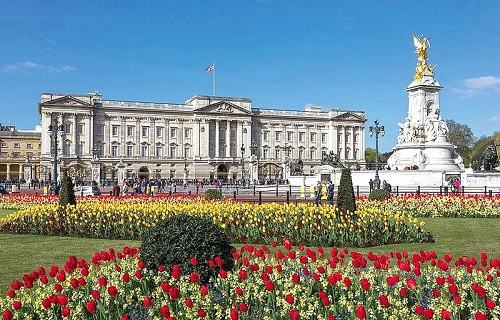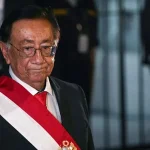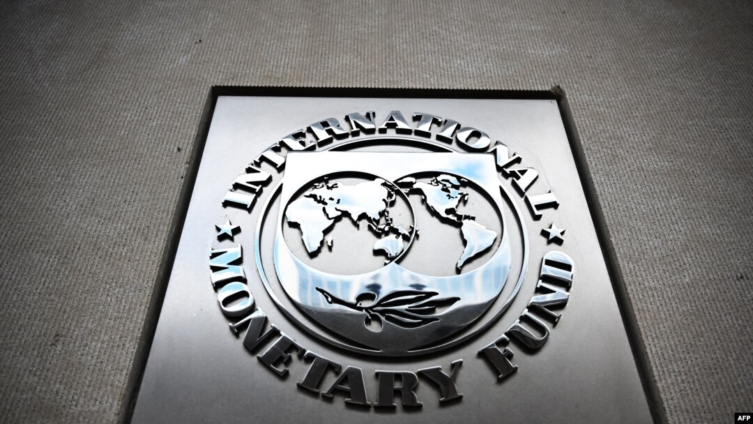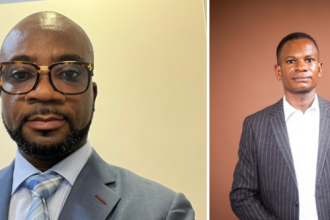Have you ever been to the UK and found yourself at Buckingham Palace in London staring in awe at the sheer brilliance of the gold adorning the Queen Victoria Memorial Statue and wondering whether the gold came from Ghana, Britain’s former colony it named the Gold Coast?
Or have you ever decided to take your morning exercise in St James’s Park, which lies between the palace and Horse Guards Parade, where the ceremonial Trooping the Colour takes place every June on the monarch’s birthday?
If so, you’ve probably unknowingly already seen Lawrence Lomotey Narhkom or heard him on his trumpet or cornet as he marches past Buckingham Palace and through the park.
LSgt Narhkom is the only Ghanaian and African musician in the elite Grenadier Guards, where he is employed as a professional cornet and trumpet player. His rank of lance sergeant (LSgt) is equivalent to that of corporal.
Create a free binance account
Known historically for their bravery on the battlefield, the Grenadier Guards are one of five regiments of the Household Division of the British Army. The others are the Coldstream, Scots, Irish and Welsh Guards.
The Grenadier Guards are based at Wellington Barracks, just a few hundred metres from Buckingham Palace, for 70 years the main residence of Queen Elizabeth II and now of King Charles III.
Three to five times each week, Lomotey Narhkom is visible in the band that leads the five household guard regiments to perform the Changing of the Guard ceremony at Buckingham Palace.
As part of that ceremony, they play marching band music as they lead the guard between Wellington Barracks, St James’s Palace and Buckingham Palace.
In his spare time, Narhkom is a jazz composer, performer and session musician with big names that draw huge crowds among the Ghanaian community in the UK. They include the king of highlife, Amakye Dede and popular gospel singers Diana Hamilton, Nacee and Ohemaa Mercy.
Before each performance, Narhkom rehearses with the brass section at the Dominion Centre in North London.
Narhkom has also performed with Nigerian superstar, Yemi Alade.
But Narhkom has an even bigger claim to fame. He once shared the stage with the legendary South African jazz trumpeter, Hugh Masekela, at a millennium event organised by popular entertainer Kwaku Sintim-Misa (“KSM”) at the National Theatre in Accra.
“Hugh Masekela was my icon,” says Narhkom. “It was humbling, terrific, exhilarating; it was just a dream come true to be on the same stage as him.”
For two to three minutes, Masekela and the young Narhkom challenged each other on stage in a call-and-response battle that had both players digging deep, Narhkom recalls.
At that time, Narhkom was the leader of the Megastar Band, set up by Steve Marpho, the owner of the Megastar recording company and Ikam printing press which financed the recording company.
He was also directing the choir at Adentan Methodist Church.
Before leaving Ghana in 2002 to seek new challenges in the UK, Narhkom had played with an array of talented Ghanaian musicians associated with the Megastar label, including Gyedu-Blay Ambolley, Pat Thomas, Jewel Ackah, George Darko, Paapa Yankson, Felix Owusu, Amakye Dede, Rev. Yawson, Nana Tuffuor and the Tagoe Sisters.
Later, Narhkom mingled with international stars such as Stevie Wonder and Will.i.am of Black Eyed Peas during the Queen’s 2012 Diamond Jubilee concert in London where he played on stage with Robbie Williams.
He also played at the funeral of Queen Elizabeth in September 2022 and the coronation of her son King Charles eight months later.
Recently, in the popular BBC television series Wolf Hall, Lomotey Narhkom played the part of John Blanke, the early 16th-century black trumpeter in the court of Henry VIII.
Despite some controversy over the colour-blind casting of several Wolf Hall characters, the historical existence of John Blanke as the black musician who won Henry VIII’s favour has been documented in paintings and archived financial records.
“Playing John Blanke felt like an honour,” says Narkhom. “You have to be at a certain standard or level to be a musician in the army. But John would have felt tremendous challenges because not only was he playing a natural trumpet with no valves, he was also playing on horseback.”
The casting of outstandingly good Ghanaian and other black actors in much-watched Netflix series such as Queen Charlotte and The Bridgertons has won the admiration of audiences across the world.
Narhkom’s talent was discovered when he was just five years old. He was sent to the John Teye Memorial School, a music school at Ofankor in Accra where he first learnt the piano, then F-Horn at age 7 before falling in love with the trumpet at age 8.
Yet, after deciding to seek new challenges overseas and join the British Army as a musician, Narhkom almost failed the entrance test when it was discovered that he couldn’t read the trumpet score in a sheet of music.
But because of his undeniable talent and musicality, Narhkom was given six months to learn to read trumpet music, succeeding in just three months.
He joined the army in September 2003, spending five years with the Band of the Adjutant General’s Corps where he established himself as the main soloist.
He moved to the Grenadier Guards for another five years before being posted to the Royal Armoured Corps in Catterick in the north of England, the biggest garrison in Europe. He stayed there for four years but missed his family and returned to the Grenadier Guards in 2017.
As a Buckingham Palace Grenadier, Narhkom has spent a full 13 years serenading Londoners and tourists from all over the world.
He sees his next big challenge as returning to Ghana to put to use the wealth of knowledge and experience he’s gained over 22 years. He sees himself setting up a military band and maybe helping to create Ghana’s marching band music or acquiring instruments and teaching children to play at a very high level.
Ghana’s lost riches lie not just in its gold. Its truest form of richness lies in its people who have given their labour and talent to build civilisations all over the world.
As Ghana begins a new year with a new government that has just been sworn in, it is time to think more purposefully about Ghanaians in the diaspora and to put in place plans to attract them home and integrate them in building a vibrant and sustainable domestic economy of Ghana.
• The author is a journalist and economic historian. For our studio discussion with Lawrence Lomotey Narhkom, follow this link to the “Your Ghana, My Ghana” show on Graphic Online TV […add link]
















